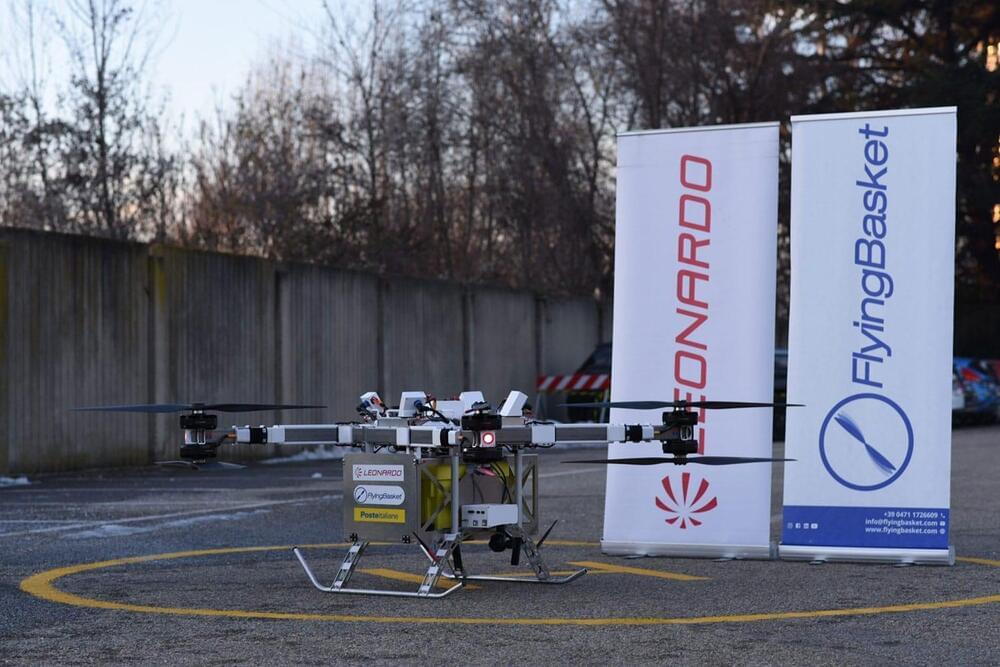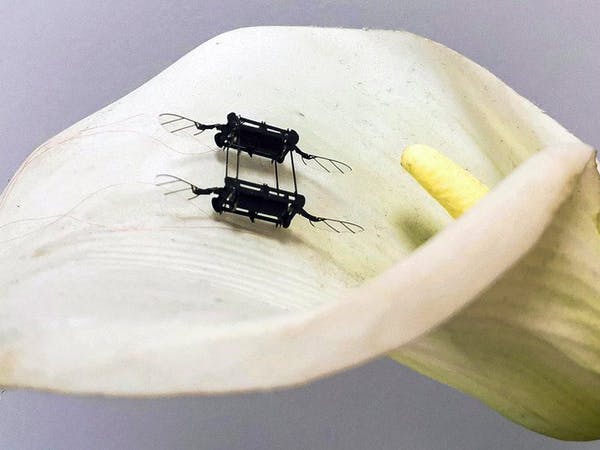Italian company FlyingBasket has reached an important milestone for the future of urban air mobility (UAM), performing the first urban area flight operation in the Italian city of Torino (Turin). The flight was part of a logistic demonstration in collaboration with Leonardo, an Italian global high-technology company, among the top world players in Aerospace, Defense, and Security, and Poste Italiane, the Italian postal service provider.
FlyingBasket’s FB3 eVTOL cargo drone with 100 kg payload capability has been in commercial operation for a year now since it received the first operational authorization to perform complex logistic missions in sparsely populated areas. During the demonstration, two FB3 heavy lift drones transported delivery packages over the Stura di Lanzo river. One drone with a cargo compartment and another with a sling payload carried 26 Kg each over a 3.9 Km distance to the destination (total flight 7 Km).
The sling payload with a cargo hook makes convenient delivery possible without the need for landing infrastructure whereas, the cargo compartment is designed to facilitate easier cargo handling, keeping it more protected from the elements during the flight. The demonstration set out a compelling instance for beyond pilots’ visual line of sight, or BVLOS flights in the advanced air mobility (AAM) context. The objective of the operation was to demonstrate the fast, efficient, and safe use of heavy-lift UAVs for freight hauling – in this instance, above a major urban center for the first time ever in Italy.








